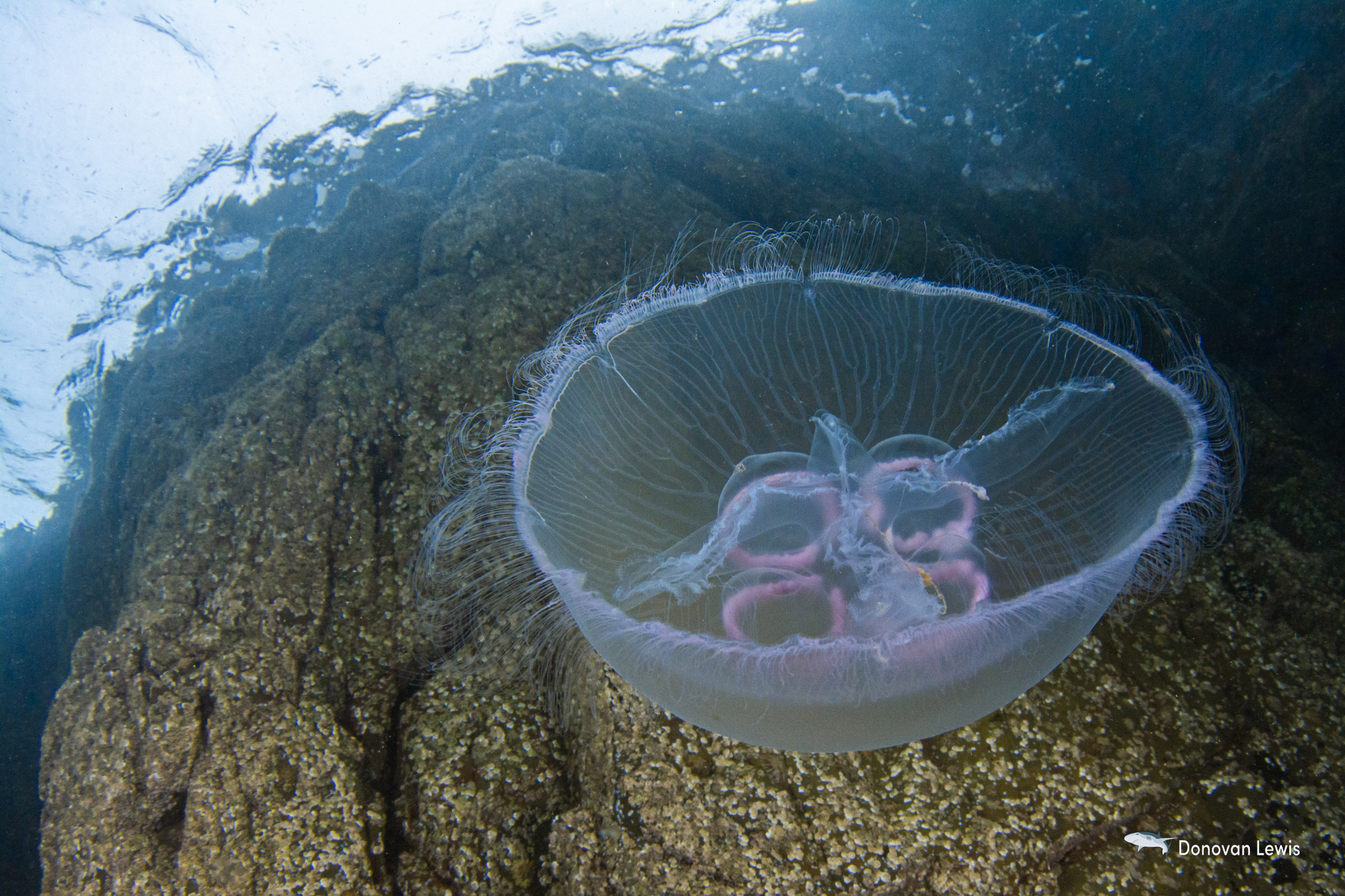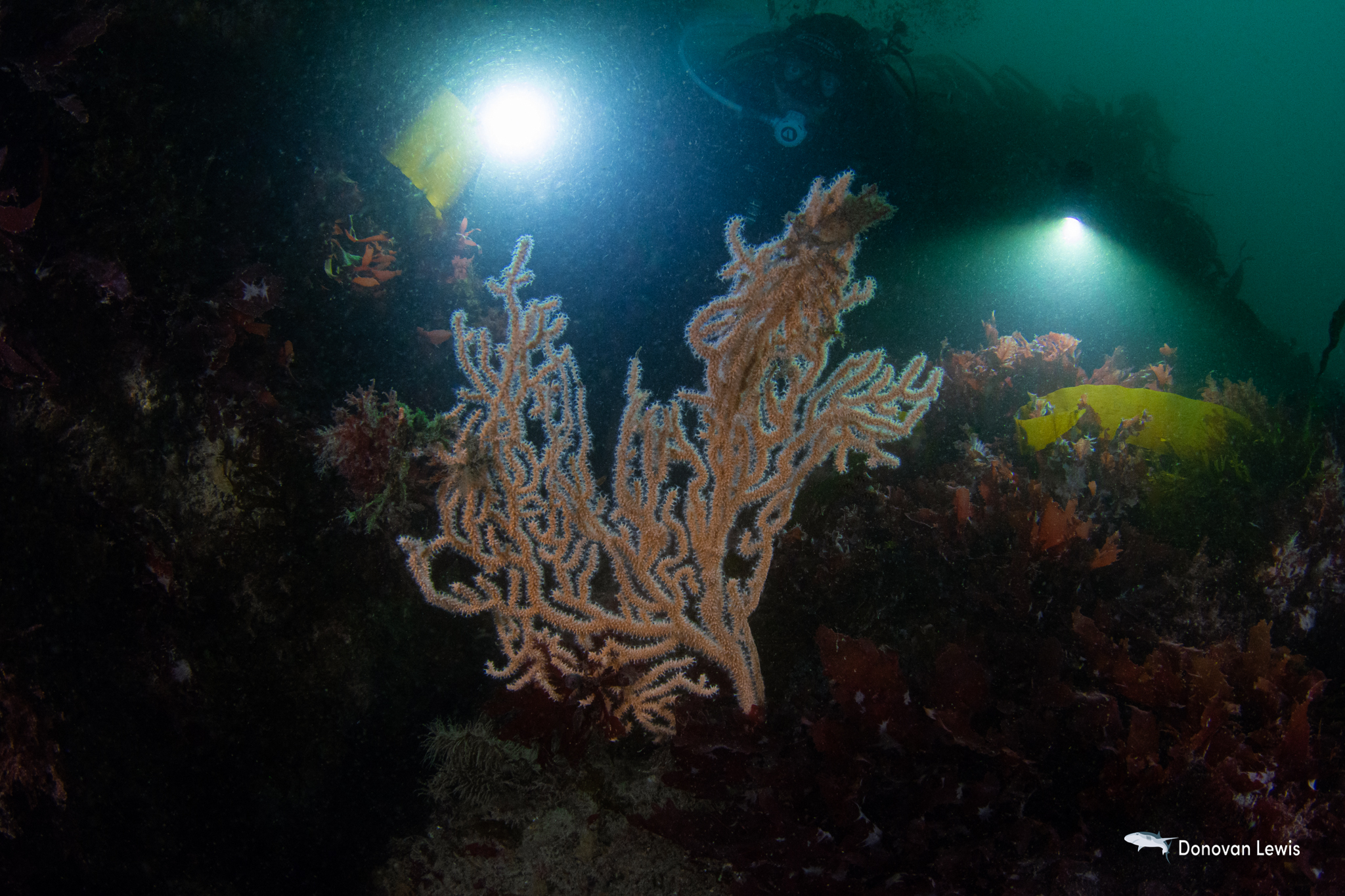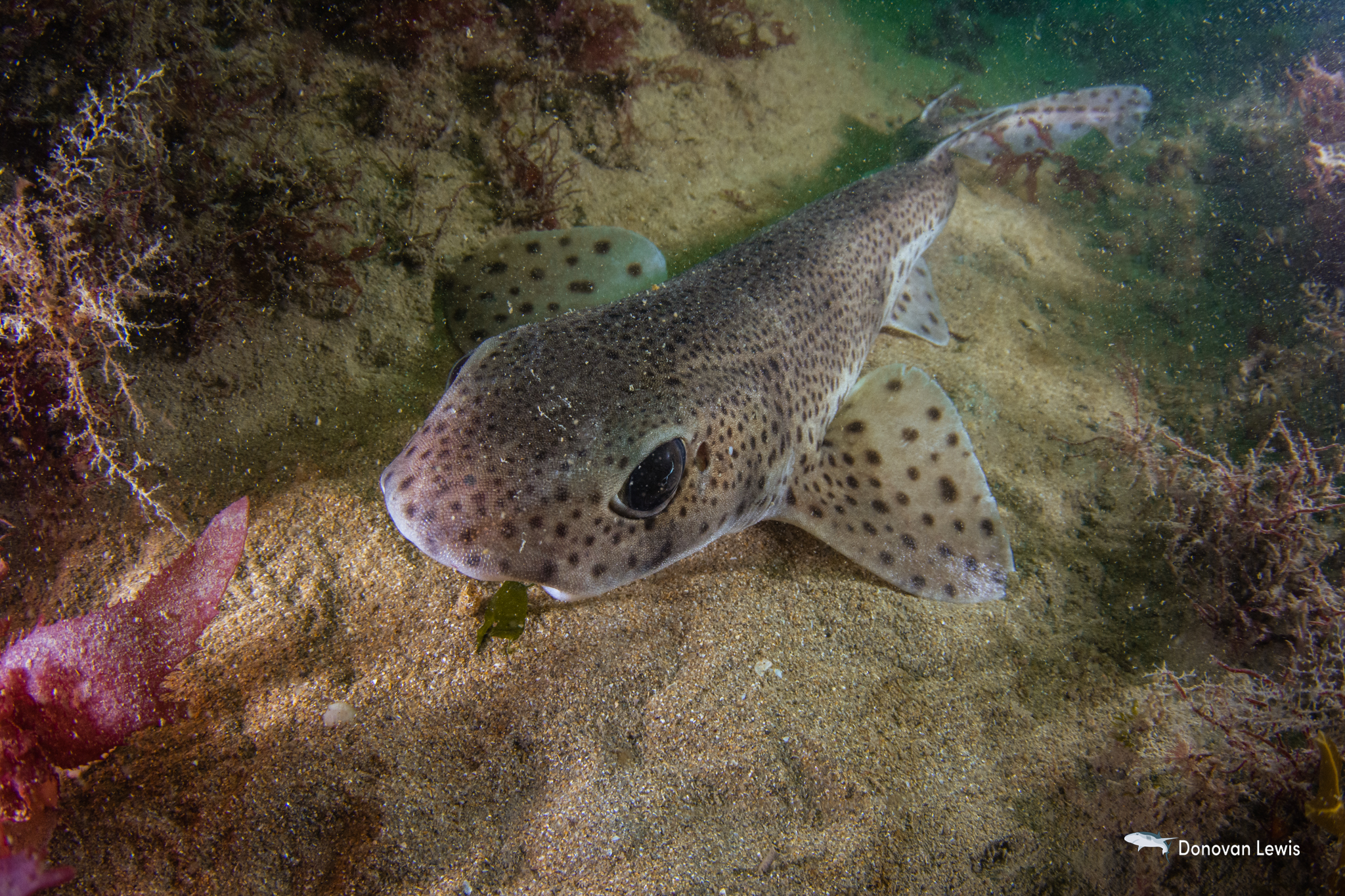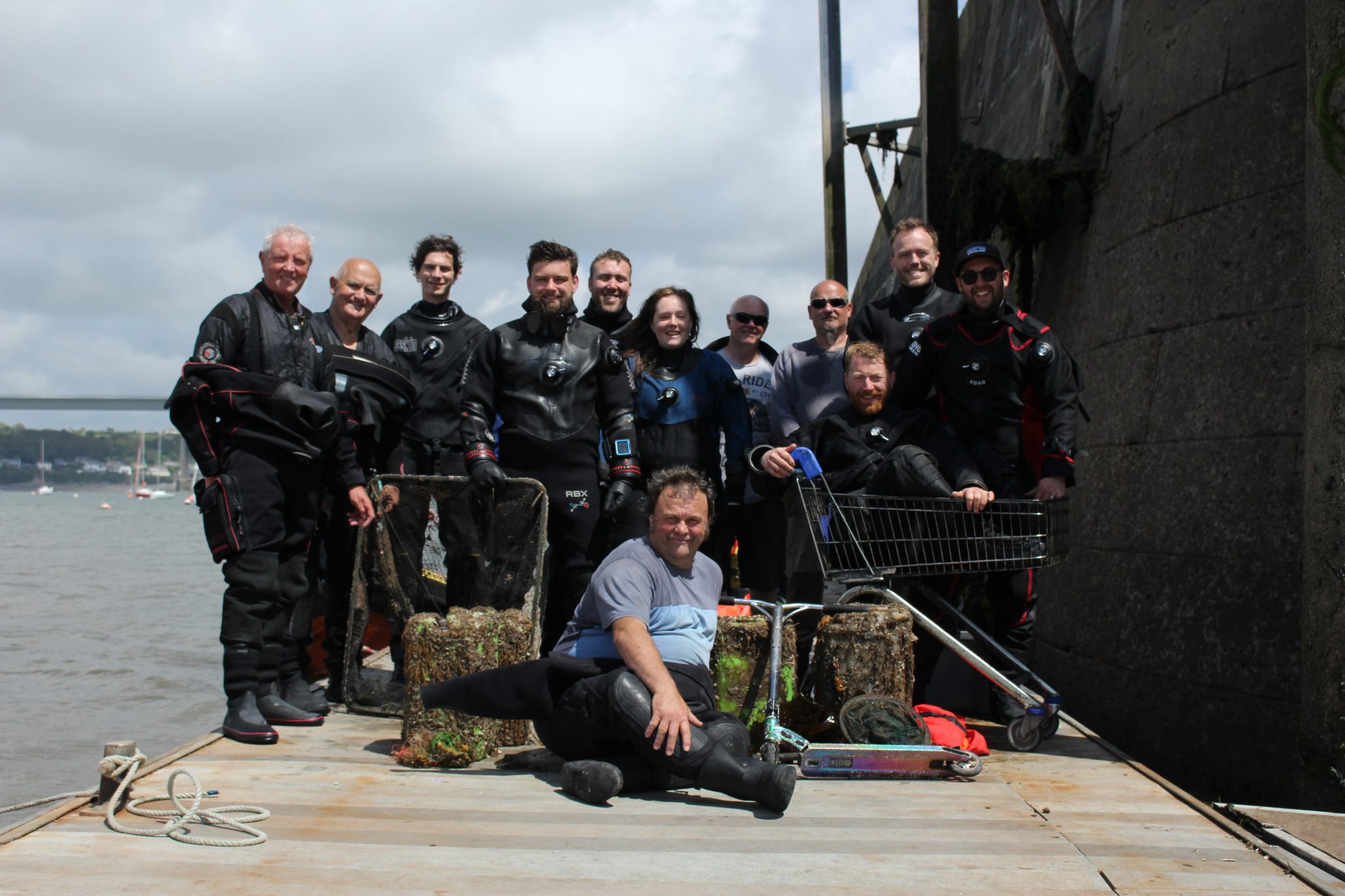News
Western Ecology Tour Expedition Report – Pembrokeshire
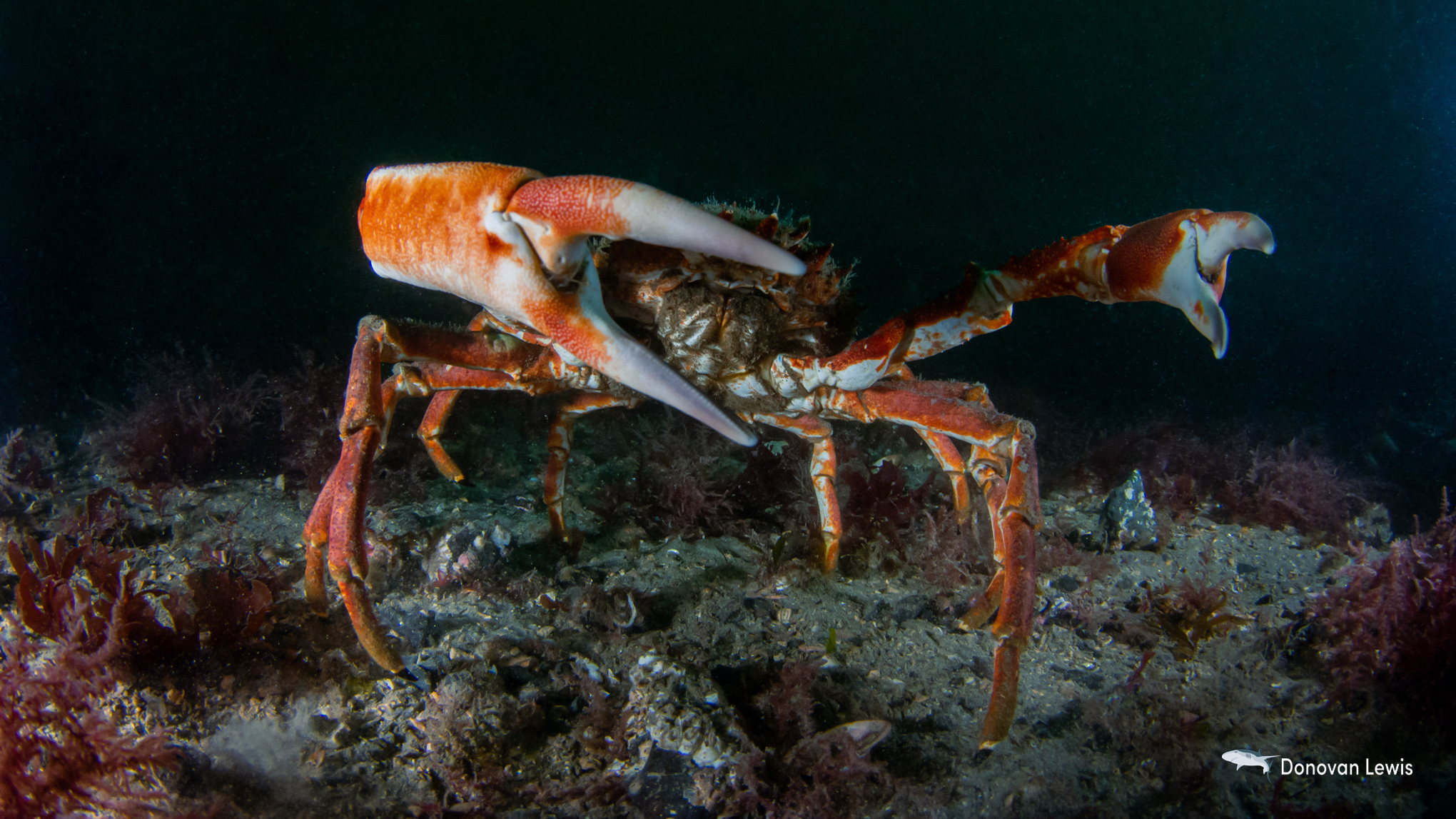
 Whilst the team were in Pembrokeshire, we were supporting Neptune’s Army of Rubbish Cleaners, a charity run by divers who are passionate on keeping their local dive sites clean. They have been running clean ups since 2005 and were the first underwater clean up group. The team and I were guided by Lloyd Jones and David Kennard, who have been running the operation for several years now. NARC work alongside the local community as they help locate pollution and rubbish that needs to be cleared, a lot of these reports come from local fisherman who lose their gear and take a note of the location to tell the team later. NARC use equipment to aid their team and to maximise their efficiency, from cutting equipment, lift bags, and boat crews to help them in removing as much rubbish as possible. NARC also take a great stance on education and take the time to not only carry out these clean ups but to also educate the local community and public on the importance of clearing debris off our beaches and to pick up any trash you may see whilst diving.
Whilst the team were in Pembrokeshire, we were supporting Neptune’s Army of Rubbish Cleaners, a charity run by divers who are passionate on keeping their local dive sites clean. They have been running clean ups since 2005 and were the first underwater clean up group. The team and I were guided by Lloyd Jones and David Kennard, who have been running the operation for several years now. NARC work alongside the local community as they help locate pollution and rubbish that needs to be cleared, a lot of these reports come from local fisherman who lose their gear and take a note of the location to tell the team later. NARC use equipment to aid their team and to maximise their efficiency, from cutting equipment, lift bags, and boat crews to help them in removing as much rubbish as possible. NARC also take a great stance on education and take the time to not only carry out these clean ups but to also educate the local community and public on the importance of clearing debris off our beaches and to pick up any trash you may see whilst diving.
The first day was spent working with NARC and diving a local dive site in the evening. The first dive was at Hobbs Point, and we were given a full briefing about what to expect on the dive and the kinds of rubbish that needed to be lifted from the site. The team were told that there were 12 Oil Drums, Nets, fishing line and a whole assortment of other rubbish, on this dive we were all equipped with net bags for smaller chunks, as well as Lift Bags for lifting the bigger pieces. There were several RIBs on standby to pick up what came up on the Bags and who also waited for our team to surface and bring us back to the dock. We were only working mere feet from the dock, but this was an active shipping lane with a Ferry actually just in from Ireland, unloading no more than 300 metres down.
Dave gave the go ahead to descend and the visibility was no more than 0.5 metres with some of us struggling to see our own hands in front of our faces, let alone seeing our feet or even our buddies. Therefor the work was done through a combination of touch communication, very close signalling and using torches to keep people together. Andy descended and dropped straight into a shopping trolley which he sent up along with nets, other members such as Lloyd, descended onto the Oil Drums with four of the twelve being lifted. There was a lot of rubbish present at this site unfortunately, with it being as easy to find as simply putting your fingertips into the mud and pulling up handfuls of discarded fishing line and lead weights. In total we managed to lift Four Oil Drums, one Scooter, one Shopping Trolley, and four Nets with one of them containing three fish which were saved and released. We also managed to retrieve bags and handfuls of fishing line and lead weights. At this point the team at NARC were due back at this site five weeks later with their goal to retrieve the rest of the oil drums and other large pieces of debris.
The second dive of day one was at Martins Haven, a dive site situated inside the Skomer Island Marine Reserve, during the briefing we were told about what to expect at the dive site and were also told that if we were to remove any Lobsters and Scallops at the site, it would incur huge fines along with the confiscation of our dive gear. The site was truly breathtaking, with large kelp beds that flattened out on to Sand flats that were covered in huge Scallops, some reaching 6 inches in width! There were large Spider Crabs who littered the bottom searching for food and a mate. The turning point of the dive was when the team came across a Pink Sea Fan, something that looked as if it belonged on one of the worlds tropical reefs rather than in the UK’s frigid waters. On the way back in we came across beautiful walls lined with kelp, anemones and barnacles, with copious amounts of Moon and Purple Jellyfish sitting in the surface water.
The final day of the expedition was a single dive at Stackpole Quay, a shallow site with easy access to the water. The crew parked at a National Trust Car Park and kitted up before walking 100m to the shore, some members of the team, including myself, were yet to see a single Catshark during the expedition and we were hoping to see some before the trip came to an end. This dive definitely didn’t disappoint, with many Small-spotted Catshark’s resting amongst the gulley’s and Kelp, some of us counted upwards of 15 Sharks on this single dive. Other sights on this dive were large shoals of Sand Eel and Sprat, young pollock and huge male Spider Crabs which had managed to gather up a number of females and whom fiercely protected them from those who came in to close to take photos. The visibility on this dive was around 3 metres so caution was took to keep close to one another and to ensure that none of us became separated.
After the dive was done, we returned to the campsite for a debrief, not only the final day, but also from the trip, along with a final meal at a local pub.
Surprisingly for some of us, the trip was not quite over as when we arrived in Pembrokeshire, we heard about spaces being available on one of Celtic Deep’s trips, namely their snorkeling trips, on this trip you get taken out to snorkel with Puffins, Razorbills and potentially Seals. There were 2 spaces available on the Saturday and Sunday with 4 of us taking up the opportunity to go out and experience another unseen story and finish the expedition with a bang.
The boat left shore at 9am but everyone had to arrive at 8:30am for briefing before disembarking, the briefing was led by Richard and Nicki of Celtic Deep. Everyone was told about how the trip is to be structured and how to effectively swim with the Puffins and how to get in close to take photos, after the briefing it was a 40-minute steam out to Skomer Island, once moored up we all jumped in off the back the boat and began to slowly approach large amounts of Puffins, Guillemot’s and Razorbills. The birds were a little shy and aired on the side of caution even if they are naturally curious, thankfully one person in each buddy group had a puffin decoy on a string, painted and donated to Celtic Deep by David Millard. These decoys were larger than an actual Puffin, so this of course peeked the Puffins interest, however as the birds approached and a camera appeared from under the water this of course scared the birds away. Nicki and Richard mentioned that the birds were unfortunately a little more skittish than usual and judging by some of their images it shows that the birds do indeed come much closer.
After spending 2.5 hours in the water with the birds it was time for us wll to get out and warm up for an hour before heading to the next site at Skokholm Island, here everyone was told that there was a chance to swim with Grey Seals or as the Skipper Fen calls them, “Maggots”, due to how they move when out of the water and how they look from a distance. Everyone jumped in and the rule of thumb to stick by was to allow the animals to get confident with us all being there and then allow them to come you, after around 2 hours in the water and the animals popping up to have a look at us all at distance it was time to head back to the boat to head back to port. As everyone was exiting a young seal came and approached the group and even grabbed onto cameras with her paws resulting in some truly close shots.
In total the trip with Celtic Deep was truly amazing with some breath-taking encounters and the opportunity to experience something truly wild, the team were professional and incredibly knowledgeable allowing us to truly enjoy a British wildlife encounter unlike anything else.
Expedition WET Summary
In conclusion the UK is almost a hidden gem of diving, many people would argue that going abroad is better. But as our team experienced during the trip, there is some truly breath-taking diving and wildlife encounters to be had, the UK has Sharks, Seals and Nudibranchs that rival that of those overseas. With a wealth of Charities carrying out hard work, experts who lead them, and life that is truly special, it’s difficult to say what the UK doesn’t have to offer for keen Divers and Photographers alike even if you must look that little bit harder to find it.
Not only is diving just as good as places abroad but it’s also easy to access with all the sites described in this report being accessed by simply walking off the beach and taking the plunge. Not only is it easy to access but it’s also better for the environment and our planet by diving local sites rather than only diving abroad. The team may have done a lot of driving during the expedition but in terms of our carbon footprint, it is a mere drop in the Ocean in comparison to getting a flight.
Keep an eye out soon for Expedition WET’s Film, which is currently in production with Ollie Putnam & Andy Clark. It will show more about the projects that were supported, the team, and life that was found during the expedition.
News
Book Review: Fire on Monroe Bravo by Fred Lockwood

Fire on Monroe Bravo is the latest book in the Jack Collier series by Fred Lockwood. Our story begins with our lead characters, Jack and Sandro, owners of Marine Salvage & Investigation Company, arriving on the Monroe Bravo Oil & Gas Platform in the North Sea. Having secured a contract for their vessel the MV Stavanger to act as support ship to the platform for TransGlobal Oil, our protagonists are on a celebratory visit.
However almost as soon as they arrive a series of explosions rock the platform, causing huge damage, loss of life and the very real danger of a massive human, ecological and financial disaster.

As the danger mounts for both our heroes and the surviving workers, Jack and Sandro will have to escape the inferno, all while trying to save the platform and the men still trapped unable to help themselves.
The disaster sets the scene for the unfolding story lines following the fate of the platform and our main characters, the police investigation into a suspected terrorist act and the actions of TransGlobal Oil as they attempt to navigate the pubic outcry and financial repercussions.
In his eighth book, Fire on Monroe Bravo, Fred Lockwood delivers an explosive thriller, with plenty of above and in-water drama, and our heroes fighting for survival, what more can you ask for?
We thoroughly recommend this read and look forward to the next in the series. For more information about his book series, you can check out the reviews of his previous books here on Scubaverse.
- Title: Fire On Monroe Bravo
- Author: Fred Lockwood
- ISBN: 979-8325324536
Available in a paperback version and for Kindle from Amazon and book stores.
Blogs
Alonissos: The complete diving destination (Part 1)

In June we were incredibly fortunate to be invited to dive in Alonissos, a small Greek Island in the Sporades island chain located in the North Aegean Sea. While I have long been a big fan of the Greek Islands as a great holiday destination, I had not had the opportunity to do any diving on previous visits and Mike and I were extremely excited to see what Alonissos had to offer both above and below the surface!

The Sporades are easily accessible via the airport in Skiathos (the first island in the chain), which is served by Jet2 flights from all major UK airports from May through October. Numerous ferries and charter boats make island hopping from Skiathos Town a breeze. After an hour boat ride, the picturesque port of Patitiri was a wonderful introduction to Alonissos, where we were met by our gracious hosts Kostas of Albedo Travel and Dias of Alonissos Triton Dive Center. Mike and I were delighted to be staying at the Paradise Hotel, aptly named for its stunning views over the sea and great location for walking to the waterfront.

Alonissos is beautifully situated in the National Marine Park of Alonissos and the Northern Sporades, the largest marine protected area in Europe. The surrounding seas offer fabulous marine life, including incredibly rare species such as the Mediterranean monk seal. They boast deep walls covered in gorgonians and sponges, stunning topography with caverns, swimthroughs and pinnacles, and the first accessible ancient shipwreck from 500BC!

In locations where historical sites have been reported, the waters are largely restricted, but with collaboration between government, underwater archeologists and dive centres, incredible underwater museums are being created for a truly unique diving experience. Alonissos is home to the first of these, the Ancient Shipwreck of Peristera Accessible Underwater Archeological Site. The chance to dive into history (along with reports of healthy reef life and amazing underwater topography) meant Mike and I were keen to get in the water.

Our introduction to the diving around Alonissos was at the Agios Georgios Pinnacles, in the channel between Alonissos and Skopelos. This fantastic site was named “The Chimney,’ and proved to have a huge amount to see. We got to a decent depth here (over 25m), and marvelled at a colourful reef wall with a wonderful swim through whose rocky walls were absolutely covered with life. As well as brilliant topography there was no shortage of macro life here. We saw numerous nudibranchs, five different species in total. The second dive at Mourtias reef nearby was a shallower dive along a nice wall with lots of crevices. Several moray eels and grouper called this site home. We enjoyed looking in the crevices for lobster and smaller benthic life, such as cup corals and tunicates.

Our itinerary allowed us two dives a day with afternoons left to explore the island with our hire car and evenings to enjoy the famous Greek hospitality. This proved to be a lovely mix of in-water and land based diversions.

The next days diving to the Gorgonian Gardens and Triton’s Cave was to be even better! These two stunning sites are nothing short of fabulous. The Gorgonian Gardens was a deep wall near to the Agios Georgios islands. The ever-present currents in this deep channel meant that the sea life was amazing … the namesake Gorgonian sea fans dotted the wall at a depth of 30 to 50 meters, getting ever larger the deeper we went. Above 30m was by no means less beautiful, with sponges, corals, scorpionfish, moray eels and some rare and colourful nudibranchs.

The second shallower dive of the day was to Triton’s Cave or the Cavern of Skopelos, on the east side of that island. The spectacular rock formations had wild striations both above and below the water making a truly epic topography. The cavern entrance was at 14m, and big enough for a buddy pair, winding up to 6m and passing two beautiful windows out into the blue. Emerging from the cavern, the light at the shallower depths and the incredible rock formations made for a fantastic gentle swimming safety stop and we all surfaced by the boat with massive grins.

Check out our next blog :Alonissos: The complete diving destination (Part 2)” to hear about our amazing dive on the 2500 year old Peristera Wreck!
Thanks to:
Alonissos Triton Dive Center https://bestdivingingreece.com/
Albedo Travel https://alonissosholidays.com/activities/
Paradise Hotel https://paradise-hotel.gr/
Alonissos Municipality https://alonissos.gr/en/
-

 Blogs2 months ago
Blogs2 months agoDiving With… Nico, Ocean Earth Travels, Indonesia
-

 News1 month ago
News1 month agoMurex Bangka Announce New Oceanfront Cottages & Beachfront Dining
-

 Blogs2 months ago
Blogs2 months agoA new idea in freediving from RAID
-

 Marine Life & Conservation1 month ago
Marine Life & Conservation1 month agoIceland issue millionaire whale hunter a licence to murder 128 vulnerable fin whales
-

 Marine Life & Conservation2 months ago
Marine Life & Conservation2 months agoThe Shark Trust Great Shark Snapshot is back
-

 News3 months ago
News3 months agoCharting New Waters; NovoScuba Goes Global with the Launch of their Revolutionary Dive Training Agency!
-

 Gear News1 month ago
Gear News1 month agoNew Suunto Ocean – a dive computer and GPS sports watch in one for adventures below and above the surface
-

 Marine Life & Conservation Blogs2 months ago
Marine Life & Conservation Blogs2 months agoBook Review: Plankton



